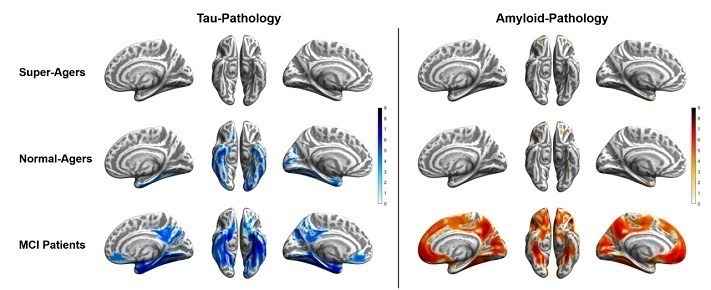Posts Tagged ‘neurodegeneration’
Update on the aducanumab (Aduhelm) saga, retirement, financial advice, cognitive health, excessive worrying, neurotech, and more
Welcome to a new edition of SharpBrains’ e‑newsletter, providing this time a summary of the saga around the FDA approval of aducanumab (Aduhelm) as a supposed treatment for Alzheimer’s Disease, plus a range of timely research findings and resources for lifelong brain health. First, below are some key reads to navigate “probably the worst drug approval…
Read MoreDon’t worry, be happy: How excessive worrying may influence the rate of neurodegeneration
Worrying and the Aging Brain (Dana Foundation): Over the past decade, scientists and clinicians have noted a significant association between common mental health conditions and accelerated brain aging—the changes to brain structure, physiology, and function that are thought to lead to later cognitive decline. Both depression and anxiety disorders, for example, are strongly correlated with…
Read MoreStudy: High Cognitive Reserve (CR) seen to significantly lower dementia risk even in the presence of high Alzheimer’s Disease (AD) neuropathology
Lifespan Cognitive Reserve—A Secret to Coping With Neurodegenerative Pathology (JAMA Neurology editorial): Given the limited success of therapeutic interventions for Alzheimer disease, there is increased interest in understanding whether modifiable factors can help cope with or postpone the appearance of brain pathology. It is estimated that about 35% of Alzheimer risk is modifiable. Epidemiologic studies…
Read MoreBrain scans show lower accumulation of tau and amyloid pathology among cognitive “super-agers”
Super-Agers Show Resistance to Tau and Amyloid Accumulation, Maintain High Cognitive Function (Society of Nuclear Medicine and Molecular Imaging press release): Super-agers, or individuals whose cognitive skills are above the norm even at an advanced age, have been found to have increased resistance to tau and amyloid proteins, according to research presented at the Society…
Read MoreStudy: Moderate lifetime drinking may lead to lower Alzheimer-related beta amyloid deposits in the brain
__ Moderate drinking tied to lower levels of Alzheimer’s brain protein (Business Standard): “Korean researchers studied 414 men and women, average age 71, who were free of dementia or alcohol-related disorders. All underwent physical exams, tests of mental acuity, and positron emission tomography (PET) and magnetic resonance imaging (MRI) scans. They were carefully interviewed about…
Read MoreNews you can use: To improve memory, exercise brain and body at the same time
___ Time for SharpBrains’ eNewsletter tracking the latest thinking, research and tools for brain health. This month we feature five fascinating interviews at the frontier of applied neuroscience and a recent study suggesting that “Performing memory training exercises at the same time as pedaling a stationary bike led to better gains in memory than doing…
Read More





